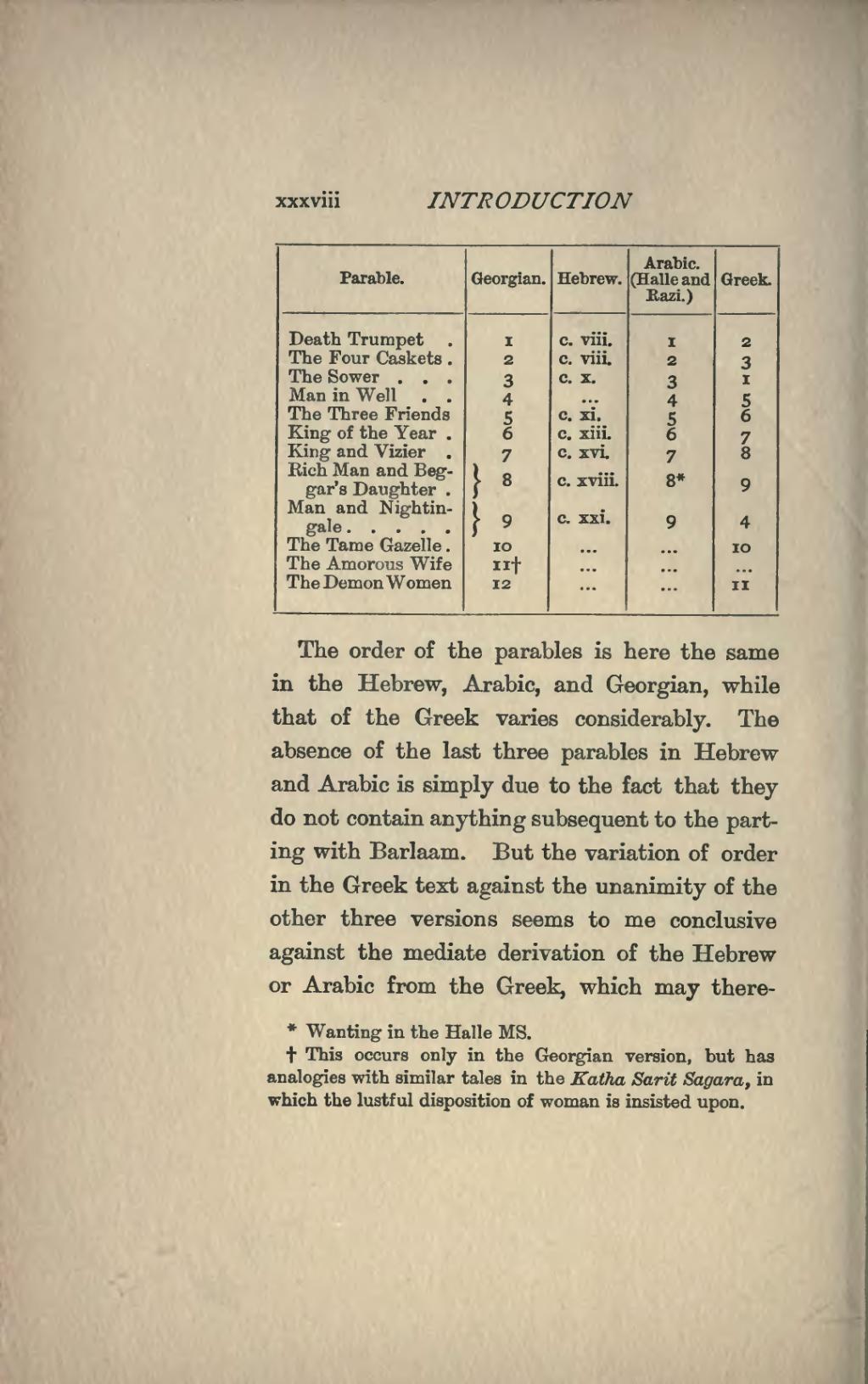xxxviii
INTRODUCTION
| Parable. | Georgian. | Hebrew. | Arabic. (Halle and Razi.) |
Greek. |
| Death Trumpet | 1 | c. viii. | 1 | 2 |
| The Four Caskets | 2 | c. viii. | 2 | 3 |
| The Sower | 3 | c. x. | 3 | 1 |
| Man in Well | 4 | … | 4 | 5 |
| The Three Friends | 5 | c. xi. | 5 | 6 |
| King of the Year | 6 | c. xiii. | 6 | 7 |
| King and Vizier | 7 | c. xvi. | 7 | 8 |
| Rich Man and Beggar's Daughter |
8 | c. xviii. | 8[1] | 9 |
| Man and Nightingale |
9 | c. xxi. | 9 | 4 |
| The Tame Gazelle | 10 | … | … | 10 |
| The Amorous Wife | 11[2] | … | … | … |
| The Demon Women | 12 | … | … | 11 |
The order of the parables is here the same in the Hebrew, Arabic, and Georgian, while that of the Greek varies considerably. The absence of the last three parables in Hebrew and Arabic is simply due to the fact that they do not contain anything subsequent to the parting with Barlaam. But the variation of order in the Greek text against the unanimity of the other three versions seems to me conclusive against the mediate derivation of the Hebrew or Arabic from the Greek, which may there-

